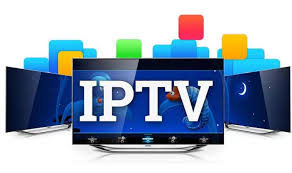In today’s dynamic world of entertainment and technology, Internet Protocol Television (IPTV) has emerged as a groundbreaking concept, providing viewers with an immersive and customized viewing experience.
IPTV+ refers to Internet Protocol Television enhanced with additional features such as on-demand content, interactive capabilities, and personalized recommendations. It revolutionizes the television viewing experience by delivering content over the internet, offering users more flexibility and control over what they watch and when they watch it
In this comprehensive guide, we explore the world of IPTV+, delving into its complexities, advantages, obstacles, and potential future.
Introduction to IPTV+!

IPTV+ combines the capabilities of traditional Internet Protocol Television (IPTV) with enhanced features such as on-demand content, interactive options, and personalized recommendations. It represents the evolution of television delivery, offering viewers a more immersive and customizable viewing experience.
What is IPTV:
IPTV, or Web Convention TV, is an innovation that conveys TV content over the web rather than customary satellite or link strategies. It allows users to stream live TV channels and on-demand content through internet-connected devices like smart TVs, computers, and smartphones.
Evolution of IPTV technology:
The evolution of IPTV technology has been remarkable. From its early days of basic channel streaming to the introduction of on-demand services and interactive features, IPTV has continually adapted to meet the changing demands of consumers. Today, IPTV offers a diverse range of content options and enhanced viewing experiences.
Introduction to IPTV+:
IPTV+ builds upon the foundation of IPTV by incorporating additional features and functionalities to enhance the viewing experience. These enhancements may include on-demand content libraries, interactive features like viewer polls or quizzes, and personalized recommendations based on user preferences and viewing habits. IPTV+ represents the next generation of television entertainment, offering viewers more control and flexibility over their content consumption.
Understanding IPTV+ Technology!
IPTV+ integrates traditional television with internet-based content delivery, offering enhanced features like on-demand streaming and interactive capabilities.
Basics of IPTV technology:
IPTV technology delivers television content over Internet Protocol (IP) networks, allowing users to stream media via internet connections rather than traditional broadcast methods.
Components of an IPTV system:
An IPTV system consists of various components including content servers, middleware, encoding/transcoding devices, content delivery networks (CDNs), and user devices like set-top boxes or smart TVs.
IPTV protocols and standards:
Common IPTV protocols and standards include HTTP Live Streaming (HLS), Real-Time Streaming Protocol (RTSP), Internet Group Management Protocol (IGMP), and Digital Video Broadcasting (DVB).
Advantages of IPTV+:
IPTV+ offers several advantages including access to on-demand content, interactive features like video-on-demand (VOD), personalized recommendations, improved viewing experience, and flexibility in content consumption.
IPTV+ vs. Traditional Television!
IPTV+ stands for Internet Protocol Television enhanced with interactive features and on-demand content. Unlike traditional television, which relies on broadcast signals, IPTV+ delivers content over the internet, offering users more flexibility and control over what they watch.
Comparison between IPTV and traditional TV:
Traditional television relies on broadcast signals transmitted over the airwaves or through cable or satellite connections. In contrast, IPTV delivers content over the internet, allowing users to access a wide range of channels, on-demand content, and interactive features.
Benefits of IPTV+ over traditional television:
IPTV+ offers a few benefits over customary TV, including:
- On-demand content: Users can access a vast library of on-demand movies, shows, and videos.
- Interactive features: IPTV+ allows users to interact with content, participate in polls, and access additional information.
- Personalization: IPTV+ can tailor content recommendations based on users’ viewing habits and preferences.
- Flexibility: Users can watch IPTV+ on various devices, including smartphones, tablets, and smart TVs, at any time and from anywhere with an internet connection.
Impact of IPTV+ on the broadcasting industry:
IPTV+ has had a significant impact on the broadcasting industry, revolutionizing how content is delivered and consumed. It has led to the rise of over-the-top (OTT) streaming services, allowing new players to enter the market and offering consumers more choices and control over their viewing experience. Additionally, IPTV+ has forced traditional broadcasters to adapt to changing consumer preferences and embrace digital technologies to remain competitive.
Types of IPTV+ Services!

Live IPTV+:
Live IPTV+ allows users to stream television channels in real-time over the internet. It offers the experience of watching traditional TV broadcasts with the convenience of internet connectivity, enabling viewers to tune into live events, news, and shows as they happen.
Video on Demand (VOD):
VOD IPTV+ services enable users to access a library of pre-recorded content, including movies, TV shows, and other videos. Viewers have the flexibility to choose what they want to watch and when, pausing, rewinding, or fast-forwarding as desired.
Time-shifted IPTV+:
Time-shifted IPTV+ services offer viewers the ability to control playback of live TV content. Users can pause, rewind, or fast-forward through programs, allowing them to catch up on missed segments or watch at their own pace.
Interactive IPTV+:
Interactive IPTV+ enhances the viewing experience by providing interactive features such as polls, quizzes, and viewer participation. Users can engage with content in real-time, vote on outcomes, or access additional information related to the program they are watching.
Hybrid IPTV+:
Hybrid IPTV+ combines traditional broadcast television with internet-based content delivery. It integrates live TV channels with on-demand services, interactive features, and internet connectivity, offering users a comprehensive entertainment solution.
How IPTV+ Works!
IPTV+ works by delivering television content over the internet using Internet Protocol (IP) networks. It involves the transmission of video, audio, and other multimedia content in the form of data packets. Users access IPTV+ services through compatible devices connected to the internet, allowing them to stream live TV channels, on-demand content, and interactive features.
Content Acquisition and Delivery Process:
Content acquisition for IPTV+ involves obtaining TV channels, movies, and other multimedia content from various sources such as broadcasters, content providers, and studios. Once acquired, the content is encoded, organized, and delivered to users through IPTV+ platforms via broadband internet connections. This process ensures seamless streaming and high-quality viewing experiences for users.
Middleware and Content Management Systems:
Middleware and content management systems play a crucial role in IPTV+ operations.Middleware goes about as a scaffold between the IPTV+ stage and the client’s gadget, overseeing client verification, content route, and intelligent highlights. Content management systems organize and categorize multimedia content, ensuring efficient storage, retrieval, and delivery to users.
Encoding and Transcoding Technologies:
Encoding and transcoding technologies are essential components of IPTV+ infrastructure. Encoding involves converting audio and video signals into digital formats suitable for transmission over IP networks. Transcoding is the process of converting encoded content into different formats or bitrates to accommodate varying network conditions and device capabilities. These technologies optimize content delivery and ensure compatibility across devices.
User Interface and Viewing Experience:
The user interface (UI) is a crucial aspect of IPTV+ platforms, providing users with intuitive navigation, content discovery, and interactive features. A well-designed UI enhances the viewing experience by making it easy for users to browse channels, access on-demand content, and personalize their preferences. IPTV+ platforms strive to offer engaging UIs that enhance user satisfaction and retention.
IPTV+ Devices and Equipment!

Set-top boxes (STBs):
Set-top boxes are dedicated devices that connect to your television and internet to deliver IPTV content. They decode and display the IPTV streams on your TV, offering features like on-demand content and interactive services.
Smart TVs and IPTV apps:
Smart TVs come equipped with built-in internet connectivity and IPTV capabilities. Users can access IPTV services directly through pre-installed apps or by downloading IPTV apps from app stores, transforming their TV into a multimedia hub.
Streaming devices and media players:
Streaming devices like Roku, Amazon Fire TV, and Apple TV, as well as media players like Chromecast, offer IPTV functionality. They connect to your TV and internet, allowing you to stream IPTV content from various providers and platforms.
IPTV+ compatible routers and networking equipment:
To ensure smooth and uninterrupted IPTV streaming, it’s essential to have compatible routers and networking equipment. These devices prioritize IPTV traffic, optimize bandwidth usage, and provide stable internet connectivity for an optimal viewing experience.
IPTV+ Content Providers and Services!
IPTV+ content providers offer a wide range of television programming over the internet, including live TV channels, video on demand (VOD), and interactive services. These providers cater to diverse audiences, offering various genres and languages to suit different preferences.
Major IPTV+ Service Providers:
Some of the major IPTV+ service providers include industry leaders like Netflix, Hulu, Amazon Prime Video, and Disney+. These platforms offer extensive libraries of content, including movies, TV shows, documentaries, and original productions, accessible through subscription-based models.
Subscription-based IPTV+ Platforms:
Subscription-based IPTV+ platforms require users to pay a monthly or yearly fee for access to their content library. These platforms offer a wide range of programming options, including live TV channels, on-demand content, and exclusive productions. Examples include Netflix, Hulu, and Sling TV.
Free and Open-Source IPTV+ Options:
Free and open-source IPTV+ options provide users with access to television programming without requiring a subscription fee. These platforms often rely on advertising revenue or community contributions to sustain their operations. Examples include Pluto TV, Plex, and Kodi with IPTV addons.
Regional Variations in IPTV+ Content:
IPTV+ content varies by region due to licensing agreements, cultural preferences, and regulatory restrictions. Some regions may have access to specific channels or content that is not available elsewhere. Additionally, local programming and language preferences influence the content offered on IPTV+ platforms in different regions.
Legal and Regulatory Aspects of IPTV+!

Copyright and licensing considerations:
IPTV+ providers must obtain proper licenses for the content they offer to ensure compliance with copyright laws. Failure to do so can lead to legal consequences such as fines or shutdowns.
Anti-piracy measures in IPTV+:
IPTV+ platforms implement various anti-piracy measures to combat unauthorized distribution of copyrighted content. This includes content fingerprinting, digital rights management (DRM), and collaboration with law enforcement agencies.
Compliance with broadcasting regulations:
IPTV+ services must adhere to broadcasting regulations set forth by regulatory authorities in their respective regions. This includes guidelines on content censorship, advertising standards, and accessibility requirements for people with disabilities.
Legal challenges and controversies in IPTV+:
Legal disputes in IPTV+ often revolve around copyright infringement, unauthorized distribution of content, and violations of broadcasting regulations. Content providers, service operators, and regulatory bodies may engage in legal battles to protect their rights and enforce compliance.
IPTV+ in Different Industries!
IPTV+ in hospitality and hotels:
IPTV+ enhances guest experiences in hotels by offering interactive TV services, on-demand entertainment, and personalized content. It also facilitates hotel management with features like digital signage, room control systems, and targeted advertising.
IPTV+ for healthcare and hospitals:
In healthcare settings, IPTV+ improves patient care by providing educational content, entertainment options, and communication tools. It enhances staff efficiency with features like real-time patient monitoring, video conferencing, and training modules.
IPTV+ in education and universities:
IPTV+ transforms learning experiences in educational institutions by offering access to educational content, virtual classrooms, and interactive learning tools. It enables universities to streamline communication, deliver lectures remotely, and engage students through multimedia resources.
IPTV+ for businesses and enterprises:
In the corporate world, IPTV+ enhances internal communication, employee training, and customer engagement. It provides businesses with tools for video conferencing, digital signage, and multimedia presentations, fostering collaboration and productivity across teams.
Challenges and Future Trends in IPTV+!
Bandwidth and infrastructure limitations: One of the primary challenges facing IPTV+ is the limitation of bandwidth and infrastructure. As IPTV+ requires a robust internet connection for seamless streaming, inadequate bandwidth and outdated infrastructure can lead to buffering issues and poor user experience.
Quality of service (QoS) issues:
Maintaining consistent and high-quality service is crucial for IPTV+ providers. QoS issues such as network congestion, latency, and packet loss can affect the viewing experience, causing interruptions and pixelation. Providers must implement efficient network management techniques to mitigate these issues.
Security and privacy concerns:
With the increasing prevalence of online threats and data breaches, security and privacy concerns are significant challenges for IPTV+ providers. Protecting user data, securing content rights, and preventing unauthorized access are essential for maintaining trust and compliance with regulations such as GDPR and HIPAA.
Emerging technologies and future developments in IPTV+:
Despite the challenges, IPTV+ holds immense potential for future developments and innovations. Emerging technologies such as 5G networks, artificial intelligence, and augmented reality have the potential to revolutionize the IPTV+ experience, offering users more immersive content and personalized recommendations. Additionally, advancements in content delivery networks (CDNs) and video compression techniques will further enhance the scalability and efficiency of IPTV+ services.
Case Studies and Success Stories!
Successful implementations of IPTV+ solutions:
Several companies have successfully implemented IPTV+ solutions to enhance their communication and entertainment offerings. For example, a major hotel chain utilized IPTV+ to provide guests with interactive TV services, including on-demand movies and personalized recommendations.
Case studies from different industries and regions:
In the healthcare industry, hospitals have adopted IPTV+ to improve patient experience and streamline communication. For instance, a hospital in Europe integrated IPTV+ into its patient rooms, allowing patients to access educational content and communicate with medical staff easily.
Lessons learned and best practices in IPTV+ deployment:
Through various case studies, valuable lessons have been learned regarding the deployment of IPTV+ solutions. Key best practices include thorough planning and testing, ensuring adequate network infrastructure, providing user training, and prioritizing security and privacy measures to safeguard sensitive data.
IPTV+ and the Future of Television!

The future of IPTV+ looks promising, with continued growth and innovation expected in the industry. As technology evolves, IPTV+ will likely offer more personalized viewing experiences, advanced interactive features, and seamless integration with other smart devices, shaping the future of television.
Predictions for the future of IPTV+:
Predictions for IPTV+ include increased adoption worldwide, advancements in content delivery technology, and a shift towards more immersive and interactive viewing experiences. Additionally, we may see further integration with artificial intelligence and virtual reality, revolutionizing how we consume television content.
Role of IPTV+ in the era of streaming services:
In the era of streaming services, IPTV+ plays a crucial role in providing users with a diverse range of content options, including live TV, on-demand programming, and interactive features. It offers a unique blend of traditional television and internet-based content delivery, catering to the evolving preferences of modern viewers.
Potential innovations and disruptions in the IPTV+ industry:
Innovations in the IPTV+ industry may include advancements in content recommendation algorithms, integration with smart home devices, and enhanced user interfaces. Disruptions could arise from regulatory changes, technological breakthroughs, or shifts in consumer behavior, leading to new business models and market dynamics.
FAQS:
What is IPTV+ and how does it differ from traditional IPTV?
IPTV+ refers to an enhanced version of Internet Protocol Television (IPTV) that offers additional features such as on-demand content, interactive capabilities, and personalized recommendations. It provides users with a more immersive and tailored viewing experience compared to traditional IPTV services.
How can I access IPTV+ services?
You can access IPTV+ services through various devices such as smart TVs, computers, smartphones, tablets, and dedicated IPTV set-top boxes. These devices allow you to stream IPTV+ content over the internet, providing flexibility and convenience in accessing your favorite shows and channels.
Benefits of IPTV+ over traditional television?
IPTV+ offers several advantages over traditional television, including a wider range of content options, on-demand viewing capabilities, interactive features such as live chat and viewer polls, and personalized recommendations based on user preferences. Additionally, IPTV+ allows for seamless integration with other smart devices and home automation systems.
Is IPTV+ legal and safe to use?
IPTV+ services are legal when accessed through authorized providers and licensed content sources. However, users should be cautious of unauthorized IPTV services or illegal streaming platforms that offer copyrighted content without proper licensing. It’s essential to use reputable IPTV+ providers to ensure legality and safety while enjoying your favorite content.
What future developments can we expect in the IPTV+ industry?
The future of IPTV+ holds exciting possibilities, including advancements in content delivery technology, enhanced interactive features, integration with emerging technologies such as virtual reality and augmented reality, and the continued expansion of content libraries to cater to diverse audience preferences. As the industry evolves, we can anticipate more innovative and immersive viewing experiences with IPTV+.
Conclusion:
“PTV+ addresses a huge progression in the media business, offering watchers a more vivid, intelligent, and customized seeing experience. With its enhanced features and capabilities, IPTV+ is poised to reshape the way we consume television content, driving innovation and growth in the industry. As technology continues to evolve, IPTV+ will play a pivotal role in shaping the future of television entertainment, providing users with greater flexibility, choice, and control over their viewing preferences”
Read more:
The Ultimate Guide to IPTV Subscription: Streamlining Your TV Experience!

